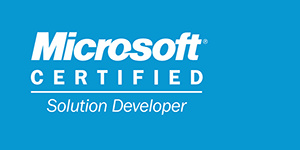Exploring predefined Agent Pool in Azure DevOps
In Azure DevOps, predefined agent pools are built-in collections of Microsoft-hosted agents that provide ready-to-use environments for executing build, test, and deployment tasks. These agent pools are designed to simplify the setup of pipelines without requiring manual configuration of agents.
Predefined Agent Pools
Azure Pipelines
Description: This is the default predefined agent pool in Azure DevOps, offering a variety of Microsoft-hosted virtual machines.
Agents: Hosted by Microsoft with pre-installed software including .NET, Node.js, Python, Java, Docker, and more.
Use Case: Ideal for general-purpose builds, testing, and deployments for applications developed in common languages and frameworks.
Key Features of Azure Pipelines Predefined Agent Pool
Pre-Installed Tools: Includes a variety of tools and languages like:
Languages: .NET, Node.js, Python, Java, Go, Ruby
Tools: Docker, Kubernetes, SQL Server, Terraform, Ansible
Environments: Windows, Ubuntu, macOS
Scaling: Automatically scales with demand, ensuring pipelines run smoothly with minimal delays.
Cost: Pay-per-use for job execution time on Microsoft-hosted agents.
Using Azure Pipelines Predefined Agent Pool
Creating a Pipeline: When defining a pipeline, you can select the Azure Pipelines agent pool to execute your tasks.
Task Execution: Tasks are executed on agents within the Azure Pipelines pool based on job configurations.
Advantages of Using Azure Pipelines Predefined Agent Pool
Ready-to-Use: No need for manual installation or configuration of agents.
Pre-Installed Software: Provides a variety of commonly used tools and runtime environments.
Scalable: Handles parallel execution of pipelines across multiple agents.
Simplified Setup: Quick integration into existing workflows.
Use Cases for Azure Pipelines Pool
CI/CD for Standard Workloads: Build and test web applications, APIs, and microservices.
Rapid Prototyping: Quick experimentation without managing infrastructure.
Multi-Language Support: Projects with multiple programming languages, frameworks, and tools.
Limitations
Custom Configurations: Limited by pre-installed software, which may not cover niche or customized toolchains.
Persistent Storage: No persistent storage across runs; all data is wiped after pipeline completion.
Comparing with Self-hosted Pools
While Azure Pipelines provides a convenient, pre-configured environment, self-hosted agent pools offer more flexibility and control, particularly for specialized or sensitive workloads.
Self-hosted agents allow you to:
Choose the software stack.
Maintain persistent data storage.
Ensure stricter security measures.






















Leave a Reply